Taiwan Province gutter oil incident: affecting 235 well-known enterprises such as Uni-President.
Three years ago, the plasticizer incident shocked Taiwan, and then "poisonous starch", "poisonous soy sauce" and "black heart oil" followed. Recently, a gutter oil incident hit Taiwan Province food safety again, and well-known enterprises have been recruited. According to the results announced by the Taiwan Food and Drug Administration today, the incident has affected 235 downstream manufacturers on the island, including well-known enterprises such as Weiquan, 85 C, Niutou Brand, Shengxiangzhen, Weiwang, Taitang, Meimeimei and Gongyan.
According to Taiwan Province’s Zhongshi Electronic News, Taiwan’s Food and Drug Administration searched the shipping list of Quantongxiang lard manufactured by Qiangguan Company from March 1 to August 31 this year. The largest number of barrels was 4,611 barrels purchased by Gongyan, followed by Taiyi, Jinlihua, Xinyi, Youcong and Weiquan. Food manufacturers have also joined the ranks, including Gourmet Master (85 degrees C), Haodiyi (tauren brand), Sheng Xiangzhen, Wei Wang, Ziweizhen (black bridge), Taiwan Sugar, Meimeimei, Keelung Li Gu, yu zhen Zhai and Wuhuama. By 10 o’clock yesterday morning, the health bureaus of counties and cities on the island had checked the night market, snack bars, food shops and raw material distributors. A total of 120 kilograms and 360,491 cans of related products were sealed. There are still 44,632 kilograms of "Quantongxiang lard" in Qiangguan Company’s factory, all of which have been sealed.
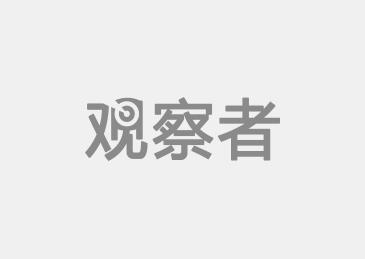
Taiwan Province waste oil affects enterprises.
Well-known companies have been recruited.
At 3 o’clock on the afternoon of September 5th, according to Taiwan Province China Times. com, the information provided by netizens showed that the food and catering industries affected included downstream manufacturers of Qiangguan Enterprise Co., Ltd. (hereinafter referred to as Qiangguan Company) such as Lu Shi, Yilin and Jiufang, and their customers included famous brands such as Uni-President Supermarket, Uni-President Starbucks, Huayuan, Lianhua and Aimian, as well as chain fast food restaurants such as KFC and Moss Burger. According to the report, whether the products contained in it actually use waste oil still needs to be investigated and dealt with by relevant parties, and it also needs clarification or apology from relevant businesses.
According to official website of Lushi Enterprise, the main customers include Taiwan Province’s No.1 famous brand of cooked noodles, Love Noodles Family, Shile (supplying Costco), Mommy Kitchen (supplying All Associated Press), 7-11 professional fresh food assembly plant, Starbucks (sandwiches, salads, etc.), Wokka (Australia’s No.1 brand of cooked noodles), and Shouhe Hi House, KFC, 21st Century, san huang and Raya.
According to official website, Yilin Company, its factories are all over Asia, with food GMP, ISO, HACCP, organic agricultural and food products, organic livestock products, HALAL and other certifications. Over the years, the small packaging products produced in Taiwan Province are enough to circle the earth more than 365 times. Yilin’s sauce package customers include Dante, KFC, 7-11, Domino’s, Moss Burger, Top Scrape and many other chain fast food brands.
In addition, Jiufang Xingye, located in Tainan City, mainly produces natural spices, compound seasoning, health food raw materials, food additives, etc. Its downstream customers include well-known food manufacturers such as Weiquan, Uni-President, Yimei, Lianhua, Huayuan and Weili.
Taiwan sugar company was recruited, and Want Want made a clarification.
Taiwan Sugar Company (hereinafter referred to as "Taiwan Sugar") was found to have used waste oil to produce products. At 2 o’clock on the afternoon of September 5, Taitang admitted that its Pingtung mass-market store had purchased 3 barrels of Qiangguan Company’s "Quantongxiang lard" to make baked goods such as chopped green onion bread, and all of them had been put on the shelves for sale. Taitang would accept consumers’ refund with invoices or relevant proof of purchase. Taiwan Sugar pointed out that in April and May this year, three barrels of 16 kilograms of "Quantongxiang lard" were purchased successively, but after the end of May, other edible oils were used.
At the same time, Taiwan Province Want Want Food issued a clarification statement, pointing out that the "Want Want Fried Roll" found in the inventory was purchased from Qiangguan Company, but it was verified that the lard was not inferior oil.
Qiangguan Company can be fined up to NT$ 80 million.
Taiwan Province’s "Food and Drug Administration" pointed out that if Qiangguan Company or other manufacturers are involved in the case, once the crime is verified, they can be transferred to trial according to "adulteration and counterfeiting" and violate Taiwan Province’s food hygiene and safety management law, with a maximum fine of NT$ 88 million (about RMB 18 million).
Ye Minggong, director of the Food and Drug Administration of Taiwan Province Weifu Department, said that the responsible person can be sentenced to a maximum of five years’ imprisonment and fined NT$ 8 million (about RMB 1.64 million), while the company involved will be fined 10 times, and the maximum fine can be NT$ 88 million. This will also be the first time that Taiwan Province’s "Esophagus Law" has used a fine of 10 times, which was just revised in February this year.
However, Qiangguan Company complained on September 4th that the company was also deceived by Guo and others, and began to buy oil at the end of February this year. Only "Quantongxiang lard" mixed waste oil.
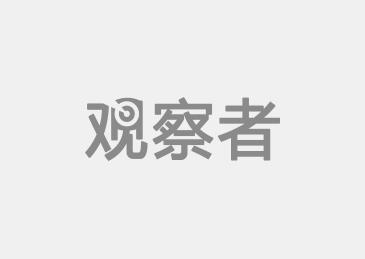
On September 4th, Ye Wenxiang, the chairman of Taiwan Province Qiangguan Enterprise Co., Ltd. involved in the case, apologized to the public.
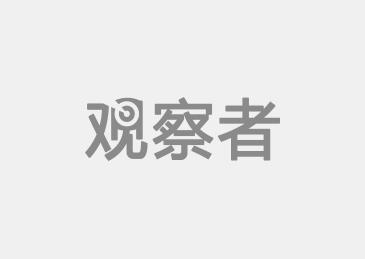
Waste oil spreads to enterprises, source: Feng Media
13 GMP certifications of Weiquan and other enterprises have been revoked.
According to the news of Taiwan Province’s "Central News Agency" on September 5, Taiwan Province’s "Food and Drug Administration of Weifu Department" announced the flow of downstream manufacturers of Qiangguan Company’s "Quantongxiang lard" in Taiwan on the same day, affecting 235 manufacturers, among which, manufacturers with food GMP certification include Sheng Xiangzhen, Wei Wang, Hao Diyi, Lu Shi, Xin Guan, Chi Mei, Wei Quan, Xiang Youwei, Gao Pin, Wei Quan.
According to the preliminary investigation, there are totally 13 GMP products from four enterprises, including Weiquan, Weiwang, Chi Mei and Lushi Enterprise (love noodles), which are suspected to be processed with Quantongxiang lard. If it is confirmed that the certified products use inferior lard and violate the food hygiene management law, the certification qualification and the right to use the certification mark of the company’s production line food GMP will be cancelled immediately.
These 13 products are 2 items such as curry beef and curry chicken of Weiwang; Chimei’s frozen fresh meat handmade dumplings, frozen leek handmade dumplings, frozen Chimei cooked dumplings (fresh meat), frozen Chimei cooked dumplings (leeks) and so on; Full-flavored spicy meat sauce, rare meat sauce, melon meat and so on; And Lushi Enterprise’s four flavors, namely, the stewed meat flavor of Ai Mian Guo Shao noodles, the dried mushroom flavor of Ai Mian Guo Shao noodles, the dried meinong batten flavor (dry) and the dried meinong batten flavor (soup).
12 certified edible oil products of Qiangguan Company were cancelled.
Taiwan Province’s "Industry Bureau of the Ministry of Economic Affairs" said that Qiangguan Company was involved in violating the food hygiene management law, and its behavior had damaged the image and credibility of the food GMP certification system. Based on the principle of good faith and safeguarding the food safety of consumers, according to the "Regulations for the Implementation of the Food GMP Certification System", Qiangguan Company’s edible oil production line was cancelled with a total of 12 edible oil certification products.
After Qiangguan Company was found to be producing inferior lard "Quantongxiang lard", the Industry Bureau of the Ministry of Economic Affairs immediately took the initiative to check the GMP baking oil production line applied by Qiangguan Company, and found that 12 products had passed GMP certification, but none of them used Quantongxiang lard. The Industry Bureau of the Ministry of Economic Affairs also asked the Food Industry Development Research Institute of the verification unit to conduct in-depth verification.
"Industry Bureau of the Ministry of Economic Affairs" pointed out that because the source of raw lard used in Qiangguan Company’s factory violated the food hygiene management law, its behavior has damaged the image and credibility of the food GMP certification system. Based on the principle of good faith and safeguarding the food safety of consumers, according to the "Regulations on the Implementation of Food GMP Certification System", Qiangguan Company’s edible oil production line was cancelled, with a total of 12 edible oil certification qualifications and the right to use certification marks.
These 12 certified edible oils and fats products include: whole white emulsified oil, whole ghee, whole ghee (pure vegetable oil), whole best fried oil, whole fragrant oil, whole baked ghee, whole crown fried oil (pure plant), whole crisp slice Margarine, Normandy fermented flavor cream (flake), Normandy wind cream (salt-free), and Normandy fermented flavor cream (salt-free).
The suspect was suspected of fleeing, and the prosecution requested to refuse his bail.
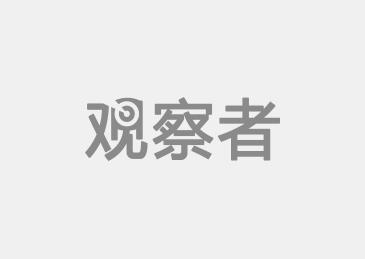
Guo Liecheng has been detained and cannot be released on bail.
Guo Liecheng, the main suspect in this illegal cooking oil incident, was found to have been emptied of his bank account, and was suspected of fleeing, so he applied to Kaohsiung Branch of Taiwan Province High Court to refuse his bail.
On September 4th, prosecutors in Pingtung, Taiwan Province applied to the Pingtung District Court for detention for violating the food hygiene management law and fraud. The court once ordered Guo Liecheng to leave with a bail of NT$ 50,000 (about RMB 10,000) because he was in rags. On September 5, the prosecution found that the cash in Guo Liecheng’s bank account of NT$ 860,000 (about RMB 180,000) had been withdrawn.
Prosecutors in Taiwan Province pointed out that Guo Liecheng began to be greedy three or four years ago. In February 2014, he set up an underground factory in Zhutian Township, Pingtung, and turned rotten water into clean oil by indigenous steelmaking. Subsequently, he sold waste oil at a price ranging from 27 tons to 30 tons each time. So far, he has traded 8 times and became the largest buyer of underground waste oil market.
Prosecutors in Taiwan Province also suspect that Guo Liecheng mixed gutter oil and various processed feed oils with subcutaneous fat of chickens and ducks purchased from slaughterhouses to make food oil.
The prosecution also pointed out that Guo Liecheng cried that he could not pay the bail of NT$ 100,000 (about RMB 20,000), and finally paid NT$ 50,000 bail, but he still had NT$ 860,000 in his account.
In addition, Dai Qichuan, the deputy general manager of Qiangguan Company involved in the case, pleaded guilty and was released on bail of NT$ 200,000 (about 41,000 RMB).
On September 4th, Taiwan Province police reported that a case of mixing edible oil with recovered waste oil such as "Goushui Oil" (commonly known as "gutter oil" in mainland China) was discovered. Six people, including Guo, were suspected of operating underground oil plants in Pingtung and Kaohsiung, Taiwan Province, and refining edible oil by mixing the recovered waste oil with sebum oil. At present, 242 tons of inferior oil produced by Guo and others flows to Qiangguan enterprises, and the latter makes 782 tons of edible oil at a ratio of about 3:1.
Taking stock of frequent food safety incidents in Taiwan Province industry in recent years;
1. In May 2011, a food and health care product safety storm caused by plasticizers broke out in Taiwan Province. There are more than 200 manufacturers involved, and there are more than 500 kinds of contaminated products, among which almost all food manufacturers in Taiwan Province are involved. Some experts said that the plasticizer storm was the most serious food poisoning incident in 30 years. The cause of the incident was whether unscrupulous operators added DEHP, a plasticizer, as a formula of clouding agent to drinks. According to experts, DEHP is mostly used in plastic materials, and it is an environmental hormone, which will endanger male reproductive ability and promote female precocious puberty. Taiwan Province has listed DEHP as the fourth category of toxic chemicals and should not be added to food.
2. In May 2013, it was reported by the media that Taiwan Province Yimei Food Company used expired "soy protein isolate" to make puffs, and 360,000 boxes were bought by consumers, and another 120,000 boxes were recycled after the incident. The local inspection and adjustment department in Tainan found in the food raw material factory "Mingzhexing" that the company used drugs to erase the expiration date on the expired or about to expire food packaging, and made huge profits by reprinting the expiration date.
3. In August, 2013, Taiwan Province Food Hygiene Unit made a surprise inspection and found that nine kinds of artificial flavors were illegally added to the "Fat Daren" bread, which was popular all over Taiwan with "pure natural" as a selling point, and it was suspected of deceiving consumers with false advertisements.
4. In October, 2013, the prosecutor in Changhua, Taiwan Province found out that 100% super olive oil manufactured by Datong Changji Company not only mixed cheap sunflower oil and cottonseed oil, but also illegally added banned "copper chlorophyll". The peanut oil made by the company also has no peanut oil component at all, but is made of salad oil mixed with mustard oil and then flavored with chemical essence. However, the so-called 100% linseed oil is made by mixing some linseed oil with salad oil.
5. In November, 2013, Taiwan Province media reported that heavy metals such as lead, arsenic, copper and mercury were detected in the seasoning packages of instant noodles of many brands such as "Master Kong" and "Unity" sold in Taiwan Province. Master Kong and Uni-President Company responded by saying that the instant noodle products of the company all meet the food safety standards, and there is no potential safety hazard. Due to the huge sales of the above-mentioned brands of instant noodles in the mainland, the incident has aroused widespread concern among mainland people. On November 20th, china food and drug administration announced the results of sampling inspection on the heavy metal content of instant noodle seasoning packets in the mainland market. The indexes of lead, total arsenic and inorganic arsenic in 129 seasoning packets of 67 instant noodle samples all met the relevant provisions of national standards.
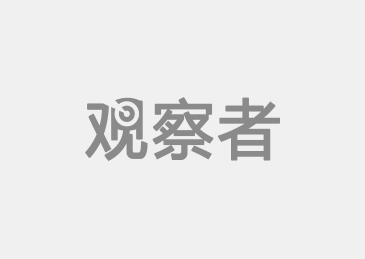
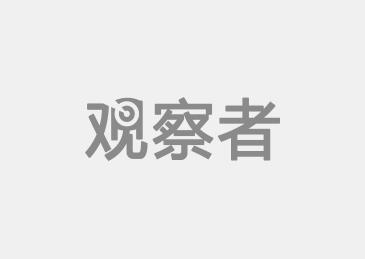
Comic book of urinary bladder clinic in Taiwan Province
Observer Network Comprehensive, Zhongxin. com Report